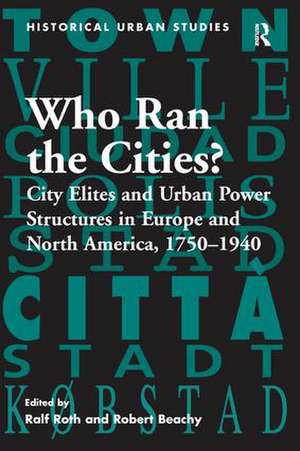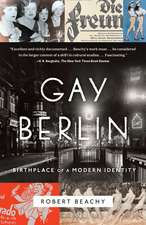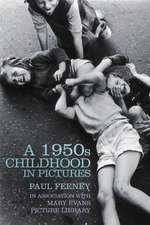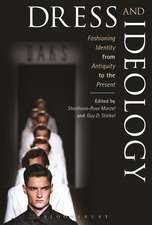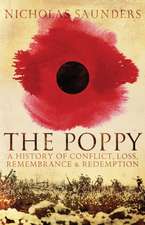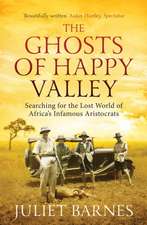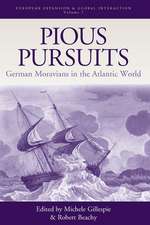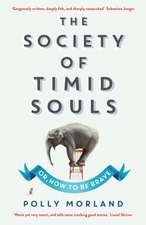Who Ran the Cities?: City Elites and Urban Power Structures in Europe and North America, 1750–1940: Historical Urban Studies Series
Autor Ralf Roth Editat de Robert Beachyen Limba Engleză Paperback – 9 sep 2016
| Toate formatele și edițiile | Preț | Express |
|---|---|---|
| Paperback (1) | 469.34 lei 6-8 săpt. | |
| Taylor & Francis – 9 sep 2016 | 469.34 lei 6-8 săpt. | |
| Hardback (1) | 1059.45 lei 6-8 săpt. | |
| Taylor & Francis – 28 sep 2007 | 1059.45 lei 6-8 săpt. |
Din seria Historical Urban Studies Series
-
 Preț: 401.92 lei
Preț: 401.92 lei - 25%
 Preț: 324.16 lei
Preț: 324.16 lei - 16%
 Preț: 338.33 lei
Preț: 338.33 lei - 16%
 Preț: 338.33 lei
Preț: 338.33 lei - 17%
 Preț: 338.33 lei
Preț: 338.33 lei -
 Preț: 469.34 lei
Preț: 469.34 lei -
 Preț: 469.34 lei
Preț: 469.34 lei -
 Preț: 386.78 lei
Preț: 386.78 lei -
 Preț: 469.34 lei
Preț: 469.34 lei -
 Preț: 469.34 lei
Preț: 469.34 lei -
 Preț: 469.34 lei
Preț: 469.34 lei -
 Preț: 469.34 lei
Preț: 469.34 lei - 25%
 Preț: 324.16 lei
Preț: 324.16 lei - 16%
 Preț: 298.19 lei
Preț: 298.19 lei - 12%
 Preț: 299.52 lei
Preț: 299.52 lei - 16%
 Preț: 299.52 lei
Preț: 299.52 lei
Preț: 469.34 lei
Nou
Puncte Express: 704
Preț estimativ în valută:
89.82€ • 93.43$ • 74.15£
89.82€ • 93.43$ • 74.15£
Carte tipărită la comandă
Livrare economică 14-28 aprilie
Preluare comenzi: 021 569.72.76
Specificații
ISBN-13: 9781138274051
ISBN-10: 1138274054
Pagini: 310
Dimensiuni: 156 x 234 x 17 mm
Greutate: 0.45 kg
Ediția:1
Editura: Taylor & Francis
Colecția Routledge
Seria Historical Urban Studies Series
Locul publicării:Oxford, United Kingdom
ISBN-10: 1138274054
Pagini: 310
Dimensiuni: 156 x 234 x 17 mm
Greutate: 0.45 kg
Ediția:1
Editura: Taylor & Francis
Colecția Routledge
Seria Historical Urban Studies Series
Locul publicării:Oxford, United Kingdom
Cuprins
Contents: General Editors' Preface; Preface; Introduction: who ran the cities?, Ralf Roth and Robert Beachy. Part I The British Model - City Elites in the United Kingdom: Elite and pluralist power in 18th century English towns: a case study of King's Lynn, Emi Kinoshi; Urban power, industrialisation and political reform: Swansea elites in the town and region, 1780-1850, Louise Miskell; Who really ran the cities? Municipal knowledge and policy networks in British local government 1832-1914, James Moore and Richard Rodger; Running an unregulated town: strategies of Lincoln's municipal elite 1860-1910, Denise McHugh; The challenge of urban democracy: municipal elites in Edinburgh and Leipzig 1890-1930, Michael Schäfer. Part II Diversity - Formal and Informal Structures of Continental Europe's City Elites: Governing Trondheim in the 18th century: formal structures and everyday life, Steinar Supphellen; German urban elites in the 18th and 19th centuries, Ralf Roth; Voluntary society in mid-19th-century Pest: urbanisation and the changing distribution of power, Ãrpád Tóth; Running 'modern' cities in a patriarchal milieu: perspectives from the 19th century Balkans, Dobrinka Parusheva. Part III Democratic Metropolises - City Elites in North America: Class and politics: the case of New York's bourgeoisie, Sven Beckert; A 'Jeffersonian skepticism of urban democracy'? the educated middle class and the problem of political power in Chicago 1880-1940, Marcus Gräser; Patrician elites and power in 19th century Montreal and Quebec City, Brian Young; Bibliography; Index.
Notă biografică
Ralf Roth is Private Docent of History at the Department of History at the Johann Wolfgang Goethe University Frankfurt am Main, Germany. Robert Beachy is Associate Professor of History at Goucher College, USA.
Descriere
This volume furthers our understanding of who actually ran cities in the eighteenth, nineteenth and twentieth centuries, and develops greater understanding of the relationship between elite and "power" in cities. To develop answers, two fields of research, which have often remained separate, have been brought together: the economic, social and cultural history of elite and the political history of power resources and decision-making. By looking at specific case studies through the lens of these issues, the volume will encourage the reader to challenge common perceptions of a monolithic elite and to replace them with a more sophisticated view of urban power as an interplay between various economic, social, political and cultural elite groups.
